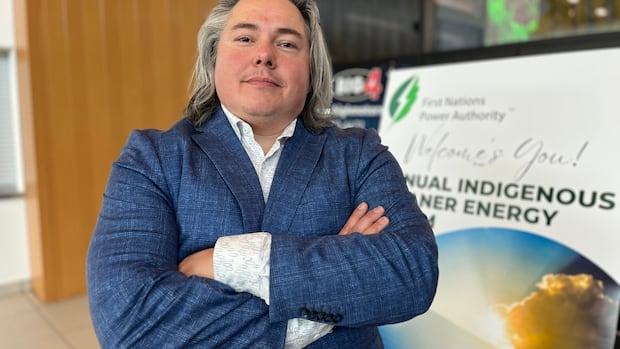Maple sap has been flowing from trees at Hallacres farm since the 1860s in Lac Brome, Que., and David Hall is a fifth generation maple syrup producer there.
“We only produce 20, 25 days a year,” he said as he showed CBC News around the property and explained how his livelihood is largely dependent on the weather.
But now, with the possibility of a 25 per cent tariff on Canadian imports looming, springtime temperatures might soon be the least of his worries.
Last year, Quebec exported around $368 million worth of maple syrup to the U.S. That’s 62 per cent of the province’s maple syrup exports.
“Are people going to stop buying syrup in the U.S.? Probably not. Will they buy less? Probably, if there’s a 25 per cent tariff,” said Hall. “We’re going to have meetings with the buyers and see what we can do.”
U.S. President Donald Trump paused his plan to widen tariffs on Canadian imports until April 2, but it’s not clear how far these new levies will reach. Earlier this month, the Associated Press quoted an anonymous White House official who said roughly 62 per cent of imports from Canada would likely still face steep tariffs.
More recently, a White House official told CBC News that despite Trump’s repeated threats about sector-specific tariffs, they may not actually happen next month. Trump said late Wednesday that he would impose a 25 per cent tariff on Canadian vehicle imports.
With the majority of Quebec’s maple syrup exports going to the U.S., some producers fear a 25 per cent tariff could drive consumers south of the border to alternative options.
What exactly will happen remains unknown, leaving those in the maple syrup industry waiting with bated breath on both sides of the border.
The state of Vermont is the top producer of maple syrup in the U.S. It’s a market that is highly interconnected with Quebec’s as American farmers depend on supplies and equipment made in Canada.
Jim Dudd operates out of Morgan, Vt. Judd’s Wayeeses Farms Maple Products has been in operation for nearly half a century in the state’s Northeast Kingdom. He’s been tapping trees since 1978.
“It’s crucial because they manufacture just about everything that we use,” he said, citing his reliance on Canadian-made supplies.

Vermont’s Maple Sugar Makers’ Association worries all of the ambivalence surrounding tariffs could lead to price increases and shortages on American shelves, stalling growth in the industry.
The association has been in operation since 1893, making it one of the oldest agricultural organizations in the United States. Like Dudd, it’s also based in the Northeast Kingdom, about 65 kilometres south of Stanstead, Que.
“Vermont and the U.S. don’t make enough maple syrup to fulfil the needs of our domestic market,” said executive director Allison Hope.
Just this month, as the sugaring season gets underway, her organization has been touting the maple syrup industry’s continued growth in the state on its Facebook page.
“It’s important to the value of the U.S. industry that we have an adequate and appropriately priced supply of Canadian syrup,” said Hope.
Dudd said he’s worried that the two countries will lose that sense of being friendly neighbours.The tariff battle may impact that longtime friendship, he said.

He also said maple syrup could lose shelf space in the stores because the price suddenly shoots up 25 per cent.
“That’s what happened in 2008 when we missed syrup and the price went a lot higher. All of a sudden it’s a break on the consumption,” he said.
Hall is referring to a time when global demand for the sticky-sweet syrup outstripped supply, in part because lingering winter cold and heavy snow slowed sap flow in Quebec, Maine and parts of Vermont.
That, combined with the exhaustion of Canadian reserves, helped drive up prices, experts said at the time.
Now, Hall said it’s a very stressful time with all of the uncertainty, but he’s going to try and focus on what he can control — producing as much maple syrup as possible.






